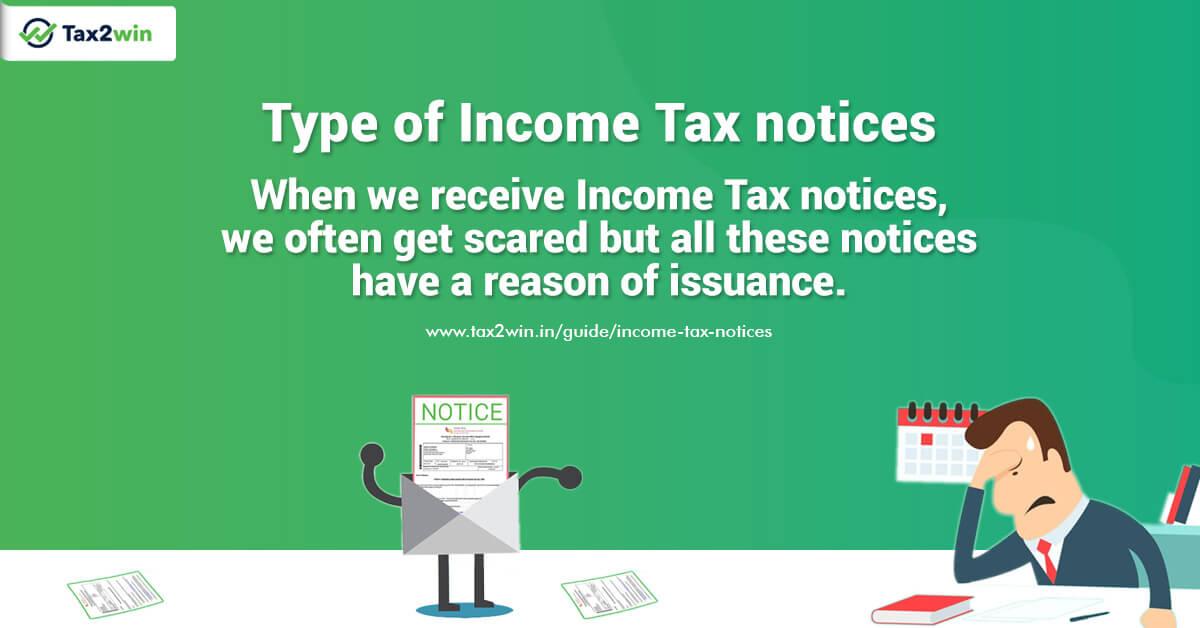Subsections of Section 139 of Income Tax Act 1961
What is Section 139(1) of Income Tax Act?
Section 139 (1)of the Income Tax Act acts as a framework that allows taxpayers to file late returns in case they miss the prescribed deadline. There are various sub-sections under section 139(1) of the Income Tax Act. The section 139(1) of the Income Tax Act offers means to rectify the non-submission of Income Tax Returns within the timeline.
Section 139(1) of Income Tax Act – Mandatory and Voluntary Returns
Section 139(1) of the Income Tax Act deals with the mandatory return policies while filing the Income Tax Return. The following entities are to file their tax return:
Bạn đang xem: Section 139 of Income Tax Act 1961 – Late ITR Filing
- Every person with a total income that exceeds the exemption limit has to furnish the income tax return within the defined due date.
- Any private, public, domestic, or foreign entity located in India or doing business in India.
- Firms, including LLP (Limited Liability Partnership) or ULP (Unlimited Liability Partnership).
- Residents who have assets located outside of India or any entity that retains authority for an account based outside India.
- Every HUF (Hindu Undivided Family), AOP (Association of Persons), and BOI (Body of Individuals) has to file an Income Tax Return if their income exceeds the prescribed exception limit.
- Under Section 139(1c), certain classes of people who fulfill a certain condition are exempt from filing the tax return. The issued notice should be placed before each House of Parliament for 30 days when sessions are held immediately following the notification. Only upon agreement by both the houses the notification shall be effective.
Voluntary Returns: If someone files an income tax return even though their income falls below the mandatory filing threshold, that return is considered voluntary. These voluntary returns are still valid for tax purposes.
Section 139(3) – Return of Loss
Section 139(3) deals with filing income tax returns in the case of a loss. It is usually quite useful to file for the return in the case of losses, as the loss is allowed to be carried forward, reducing the tax liability in subsequent years. The following are specifically defined cases-
- In the case of an Individual Taxpayer, the tax return is not mandatory if the loss was incurred in the previous financial year. However, in the cases of loss in companies and firms, the tax return for a loss is mandatory.
- If the loss for a company arises under the head “Profits and Gains of Business and Profession” or “Capital Gains,” filing the tax return shall be mandatory in the case that the company wants to carry ahead the loss and offset it with the future income. The option is only available if the tax return is filed by the due date.
- In the case of loss occurring in “House or residential property,” the loss can be carried forward even if the tax return is filed beyond the due date.
- Except for “House and Property,” other losses filed under Section 142(1) cannot be carried forward, leaving out the unabsorbed depreciation value.
- In the alternative case of loss being offset against some income in another category for the same year, an offset is permitted even if the return is filed beyond the due date.
- Losses incurred in previous years can be carried forward if the return is filed by the due dates and the losses are assessed.
Section 139(4) – Belated Income Tax Return
Xem thêm : जानें मंगल पांडे के बारे में 10 लाइन
It is advisable for a taxpayer (whether an individual or any other entity) to furnish the tax return before the due date as per Section 139(1) of the Income Tax Act. However, if the return file is still delayed, there is still the possibility of filing the belated return for prior years until the expiry date of the current applicable year of assessment or before the financial year is concluded. Nonetheless, if the taxpayer fails yet again, a penalty of 5,000 rupees is charged under Section 271F of the IT Act, 1961. The penalty can be escaped if the income did not require the mandatory filing as defined under Section 139(1) of the Income Tax Act and the return was filed after the due date.
Section 139(5) – Revised Income Tax Return
If a person who has furnished a return under section 139(1) or section 139(4) discovers any omission or error, they may submit a revised return before the end of the relevant assessment year or before the assessment is completed, whichever is earlier. The revised return will replace the original return from the date the original return was filed. A loss return filed belatedly under section 139(4) can be revised under section 139(5), but the loss cannot be carried forward since the original return was filed late.
Section 139(4a) – Charitable Trusts
You must file an income tax return if you receive any of the following income and the total amount (before considering exemptions under sections 11 and 12) exceeds the tax-free limit:
- Income from property held in trust (or under another legal obligation) for charitable or religious purposes, even if the trust also has other purposes.
- Voluntary contributions made to such trusts or institutions.
The return of income must be furnished in Form No. ITR-7 and verified in the prescribed manner containing all the necessary particulars. This return must be submitted by the representative assessee within the time prescribed under section 139(1) of the income tax act electronically, either under digital signature or otherwise.
Section 139(4b) – Political Parties
The chief executive officer (regardless of whether they are referred to as Secretary or by any other title) of every political party must file a return of income for the previous year if the total income, computed under this Act without considering the provisions of section 13A, exceeds the maximum amount not chargeable to income tax. The return should be submitted in the prescribed form, verified in the prescribed manner, and include all required details. All the provisions of this Act will apply to this return as if it were required to be filed under sub-section (1).
Section 139(4c) and 139(4d) – Income Tax Return for Entities Claiming Exemption under Section 10
Xem thêm : 1 मील में कितने किलोमीटर होते हैं – 1 Mil Barabar Kitna Kilometre
As per Section 10 of the Income Tax Act of 1961, there are certain institutions that can claim certain benefits, and for the tax return of these institutions- Section 139(4C) and Section 139(4D) are to be referred to.
Section 139(4C) includes those institutions for which it is necessary to file a tax return if the maximum allowable limit is beyond the maximum cap of tax exemption, which shall exclude other exemption benefits enjoyed by the institution.
These institutions are mainly the following groups and agencies-
- Associations engaged in scientific research,
- Institutions or associations under Section 10(23A),
- News agencies,
- Institutions under Section 10(23B),
- Educational and Medical Institutions, Universities, and Hospitals,
Section 139(4D) of the Income Tax Act pertains to universities, colleges, and other institutions that are not required to file tax returns of income and loss under any other provision in this section. Specifically, it applies to institutions referred to in Section 35(1)(ii) and Section 35(1)(iii). If an institution falls under this category, it must furnish its return of income or loss every previous year, similar to other taxpayers. However, if their income is unconditionally exempt under various clauses of Section 10, they may use the relevant ITR form for filing their return.
Section 139(9) – Defective Returns
A tax return can be deemed to be defective under Section 139(9) if documents are missing. The taxpayer shall make the judgment of a defective return, and the taxpayer shall be duly notified via a simple letter. A time slot of fifteen days shall be given to rectify the problem and produce the missing documents. The period might also be extended upon the request of the taxpayer providing valid reasons. Thereby, one must note the following list of documents for your file to avoid being deemed defective.
- Statement displaying the computation of payable taxes.
- Filed tax return in the required form.
- Proofs of all claims of the taxes paid.
- Before filing the return, a report is furnished. This report of the auditing done under Section 44AB is required.
- Copies of the audit report, balance sheet, and auditor’s profit and loss accounts in case the taxpayer’s account is audited.
- The relevant report in the case of Cost Audit.
- If the taxpayer has no book maintained for accounts, then a statement is required indicating the gross receipts, turnover amount, bank balance, stocks, cash, debtors or creditors information, expenses and net profit, etc.
- In the case that the taxpayer maintains a book of the accounts, then these mandatory copies are required:
- All accounts of Profit and Loss, Manufacturing accounts, Trading accounts, Balance sheets, and accounts of all income and expenses.
- Personal accounts of partners in the case of partnership firms
- For AOP/BOI, all members should produce their personal accounts.
- Proprietor’s personal account.
Nguồn: https://craftbg.eu
Danh mục: शिक्षा
This post was last modified on November 22, 2024 3:13 pm

